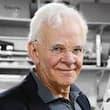This course is part of University Chemistry.
This introductory course examines the fundamental principles of electrochemistry and their applications in modern energy solutions. Students will explore the connections between electrical, chemical, and mechanical energy, focusing on practical applications like electric vehicles and renewable energy storage. The course covers essential concepts including Gibbs Free Energy, electron flow, chemical transformations, and acid-base reactions. Special attention is given to comparing different energy sources, understanding battery technologies, and analyzing the transition from fossil fuels to renewable energy solutions.
4.5
(14 ratings)
16,870 already enrolled
Instructors:
English
English
What you'll learn
Understand foundational concepts of acid-base chemistry and equilibrium reactions
Explain the significance of electrochemistry in modern applications
Master the principles of oxidation and reduction in chemical reactions
Compare efficiencies between renewable and fossil fuel energy sources
Analyze electrochemical cell reactions and their applications
Evaluate different battery technologies for energy storage efficiency
Skills you'll gain
This course includes:
PreRecorded video
Graded assignments, exams
Access on Mobile, Tablet, Desktop
Limited Access access
Shareable certificate
Closed caption
Get a Completion Certificate
Share your certificate with prospective employers and your professional network on LinkedIn.
Created by
Provided by

Top companies offer this course to their employees
Top companies provide this course to enhance their employees' skills, ensuring they excel in handling complex projects and drive organizational success.





Module Description
This course provides a comprehensive introduction to electrochemistry and its applications in modern energy systems. The curriculum explores fundamental concepts of chemical and electrical energy transformations, acid-base chemistry, and equilibrium reactions. Students learn about various energy storage technologies, comparing traditional fossil fuel systems with emerging renewable solutions. The course emphasizes practical applications, particularly in electric vehicles and sustainable energy production, while examining the efficiency and environmental impact of different energy sources.
Fee Structure
Individual course purchase is not available - to enroll in this course with a certificate, you need to purchase the complete Professional Certificate Course. For enrollment and detailed fee structure, visit the following: University Chemistry
Instructor

8 Courses
A Pioneering Leader in Atmospheric Chemistry and Climate Science
James G. Anderson, born in 1944 in Spokane, Washington, serves as the Philip S. Weld Professor of Atmospheric Chemistry at Harvard University since 1982, holding appointments in Chemistry and Chemical Biology, Earth and Planetary Sciences, and the School of Engineering and Applied Sciences. His groundbreaking research on atmospheric free radicals and ozone depletion directly shaped the 1987 Montreal Protocol, the first treaty ratified by all countries worldwide to protect the stratospheric ozone layer. His work pioneered ultra-sensitive laser detection techniques capable of measuring concentrations as low as 1 part in 10^14, definitively proving CFCs' role in ozone destruction. Recently, he established revolutionary connections between stratospheric ozone depletion and climate change, particularly through studying how violent thunderstorms transport water vapor into the stratosphere. His research group currently focuses on four key areas: chemical catalysis in the atmosphere, mechanistic links between atmospheric chemistry and climate, development of solar-powered aircraft for climate observation, and fundamental chemical reactivity studies. Beyond research, he has made significant contributions to education through his book "University Chemistry: Frontiers and Foundations from a Global and Molecular Perspective," which contextualizes chemistry within global energy and climate challenges. His exceptional contributions have earned him numerous prestigious honors, including election to the National Academy of Sciences, American Philosophical Society, and American Academy of Arts and Sciences
Testimonials
Testimonials and success stories are a testament to the quality of this program and its impact on your career and learning journey. Be the first to help others make an informed decision by sharing your review of the course.
Frequently asked questions
Below are some of the most commonly asked questions about this course. We aim to provide clear and concise answers to help you better understand the course content, structure, and any other relevant information. If you have any additional questions or if your question is not listed here, please don't hesitate to reach out to our support team for further assistance.


